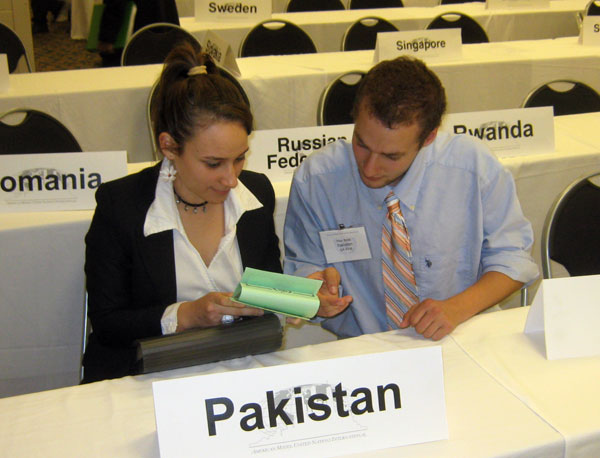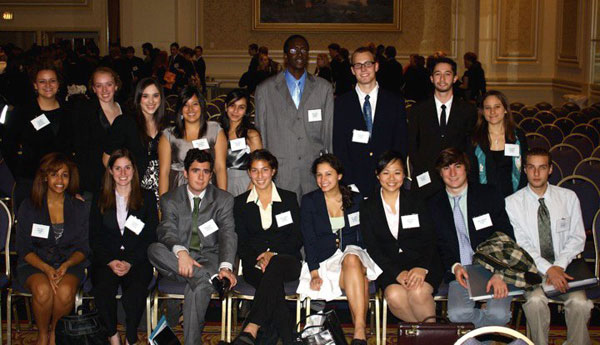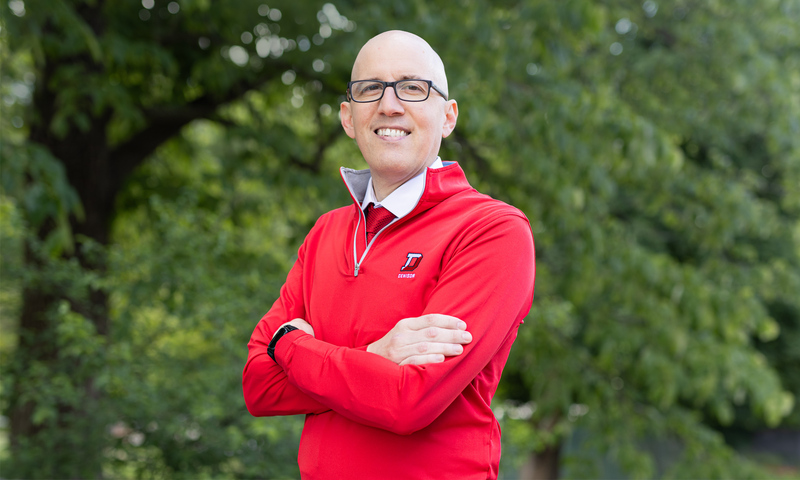It’s not every day that U.S. college students have to fully imagine themselves as citizens of another nation—say, Pakistan, for example. But that’s exactly how one Denison political science class spent part of their Thanksgiving break.
Sophia Chen of Bridgewater, N.J., and Matthew Coglianese of East Islip, N.Y., are two of the students who participated in the annual American Model United Nations (A.M.U.N.) International Conference in Chicago. And it wasn’t your typical attend-a-meeting-then-eat-lunch sort of symposium. This was a “simulation,” so they had to practically become the subjects of their research.
As members of the Historical Security Council, for example, Chen and Coglianese spent a whole day negotiating hot button topics from the year 1993. They were just looking forward to some well deserved relaxation when a swelling crisis in Bosnia demanded an emergency meeting. So Chen and Coglianese brokered solutions until sunrise, which helped them to snag Best Delegate awards. (They were also able to sleep in the next day.)
Emergency midnight meetings are just part of the package at the A.M.U.N. annual simulation. Members of Assistant Professor of Political Science Katy Crossley-Frolick’s United Nations/World Problems class represented the Islamic Republic of Pakistan at the conference. Mirroring the actual U.N., the students hashed out global issues, discussing everything from nuclear power to post-conflict peace building–and all from the viewpoint of their assigned country.
“Sometimes I’d get worked up over a resolution, and I had to remind myself this wasn’t the real United Nations and lives didn’t actually hinge on my decision,” said Coglianese.
To gear up for the event, Crossley-Frolick’s students spent the fall semester compiling research binders that were pertinent to actual U.N. development goals, and they poured over topics relevant to their assigned committees. Students also participated in a weekly lab, where they practiced negotiation strategies.
Erin Saul of Cincinnati, Ohio, who won an award at the conference last year, returned as a teacher’s assistant and as head delegate to assist the new batch of blossoming diplomats. She recognized what might seem like a disconnect between research and practice–between compiling information and actually exercising strategies. But, she said, “the binders don’t just get shoved away. They actually apply.”
The hours of research paid off. Crossley-Frolick said the students “ran the table” in each of their committees. Their preparation, she noted, allowed the students to build coalitions and to urge along their resolutions, despite representing a smaller country.
After the conference, the students returned to class with an intimate attachment to the topics they had researched. Mary Schaefer of Northbrook, Ill., recently parlayed her work on Pakistan’s position in the economic crisis into a class debate.
“Researching topics in such depth during the semester caused me to be really invested in the class,” explained Schaefer.
And many of the global issues addressed during the conference trickled down to students on a personal level. The simulation reinforced the desire of Malick Guisse of Cincinnati, Ohio, to help alleviate poverty in his home country of Senegal.
“I want to be among the people who will have an impact on the world,” he said.


